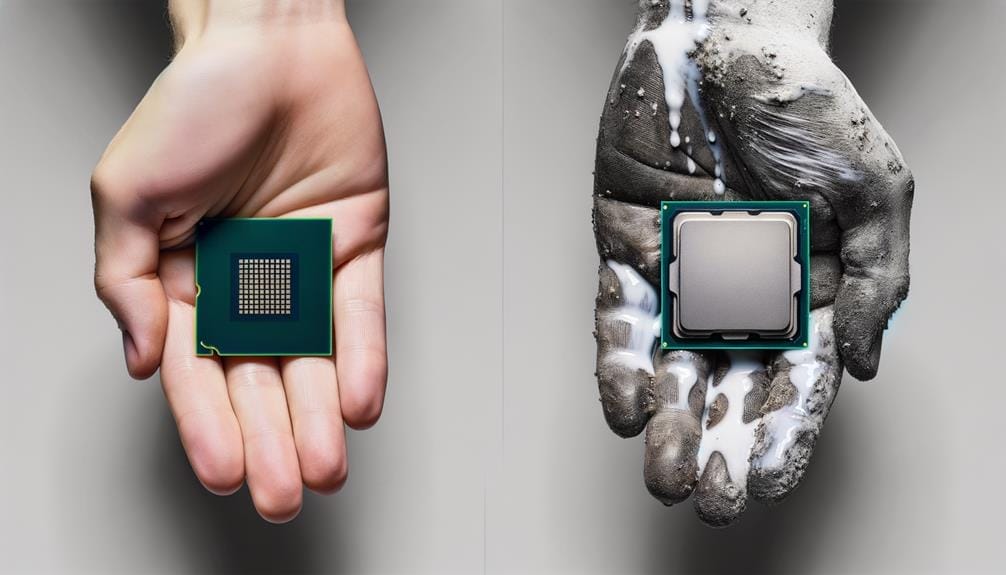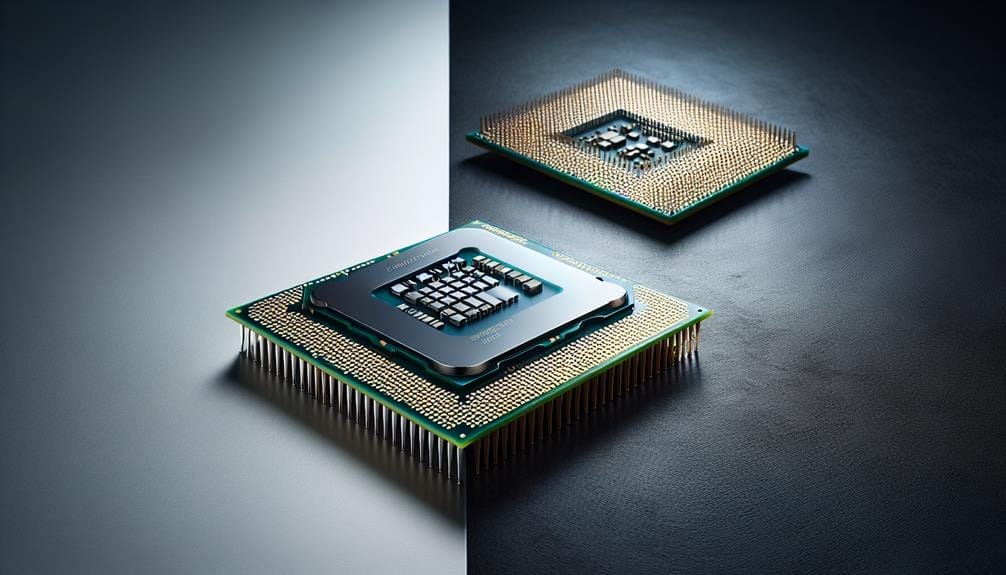Used CPU Purchases: Risky Business or Smart Save

Have you ever thought about purchasing a pre-owned vehicle, considering the potential drawbacks alongside the benefits of opting for a financially prudent choice?
Much like that scenario, buying a used CPU can be a similarly contemplative decision. While the prospect of saving a significant amount of money might seem enticing, the potential pitfalls and uncertainties surrounding the quality and longevity of the component might be causing you to hesitate.
But fear not, as this article will unravel the complexities surrounding used CPU purchases, helping you make an informed decision that aligns with your computing needs and budget.
So, are used CPU purchases a risky business or a smart save? Let's uncover the truth behind this dilemma.
Key Takeaways
- Buying a used CPU can save you money compared to buying new.
- Used CPUs can provide access to older generation models that still meet performance needs.
- There is a risk of limited warranty coverage and uncertainty about the CPU's history and usage conditions when buying used.
- It is important to consider the seller's reputation, thoroughly check the CPU for damage, and research specifications and compatibility before buying a used CPU.
Benefits of Buying Used CPUs

When considering your options for purchasing a CPU, buying a used one can offer significant cost savings and access to older generation models that may still meet your performance needs.
You can save a substantial amount of money by opting for a used CPU, allowing you to allocate your budget to other essential components or peripherals.
Additionally, if your performance needs aren't incredibly demanding, older generation CPUs can still deliver satisfactory results for everyday tasks and moderate gaming.
Risks and Considerations
If you're considering purchasing a used CPU, it's important to be aware of the potential risks and considerations involved in this decision. When buying a used CPU, you should consider:
- Limited or no warranty coverage
- Uncertainty about the CPU's history and usage conditions
- Higher likelihood of encountering compatibility issues with other hardware components
- Potential for reduced performance or shorter lifespan due to wear and tear
It's crucial to thoroughly research and consider these factors before making a purchase. Pay close attention to warranty coverage and the compatibility of the used CPU with other components to avoid potential issues down the line.
Factors to Consider

Consider the seller's reputation and credibility when buying a used CPU to ensure a reliable and trustworthy transaction. Thoroughly checking the CPU for physical damage or signs of overheating is essential, as it can indicate potential issues. Research the CPU's specifications, benchmarks, and compatibility with other components to ensure it meets your performance needs.
Verify the CPU's authenticity to avoid counterfeit or tampered products. Evaluate the overall value proposition, considering the price, condition, and performance of the used CPU. Additionally, compare the CPU's performance with newer models to gauge its long-term reliability.
Best Practices for Purchasing
To ensure a reliable and trustworthy transaction when purchasing a used CPU, thoroughly checking the CPU for physical damage or signs of overheating is essential, as it can indicate potential issues. When considering best practices for buying a used CPU, there are several key factors to keep in mind:
- Testing methods: Prioritize sellers who allow you to test the CPU upon receipt to ensure it functions properly.
- Warranty coverage: Look for CPUs that come with some form of warranty, even if it's limited, to protect your investment.
- Trusted sellers: Purchase from reputable sellers or platforms with buyer protection policies to minimize the risk of encountering counterfeit products.
- Researching benchmarks: Research the CPU's specifications, benchmarks, and compatibility with other components to make an informed decision.
Alternatives to Used CPUs

When seeking alternatives to used CPUs, explore the possibility of renting or leasing CPUs for temporary or specific projects. This option allows you to access the computing power you need without the upfront investment of purchasing a new or used CPU.
Additionally, consider refurbished CPUs as they often come with warranties and thorough testing, providing a cost-effective and reliable alternative to buying brand new.
Reputable manufacturers also offer budget-friendly options, providing you with access to quality CPUs at more affordable prices.
Waiting for sales or discounts on new CPUs is another way to get the best value for your money.
Furthermore, some manufacturers offer CPU upgrade programs, allowing you to trade in old CPUs for discounts on new ones, presenting a practical and economical solution.
Conclusion
So, should you go for a used CPU?
It's a smart save if you're willing to weigh the risks and benefits. With cost savings and access to older models on one hand, and potential warranty limitations and performance issues on the other, it's important to make an informed decision.
By considering factors, best practices, and alternative options, you can navigate the world of used CPU purchases with confidence and make the best choice for your computing needs.

